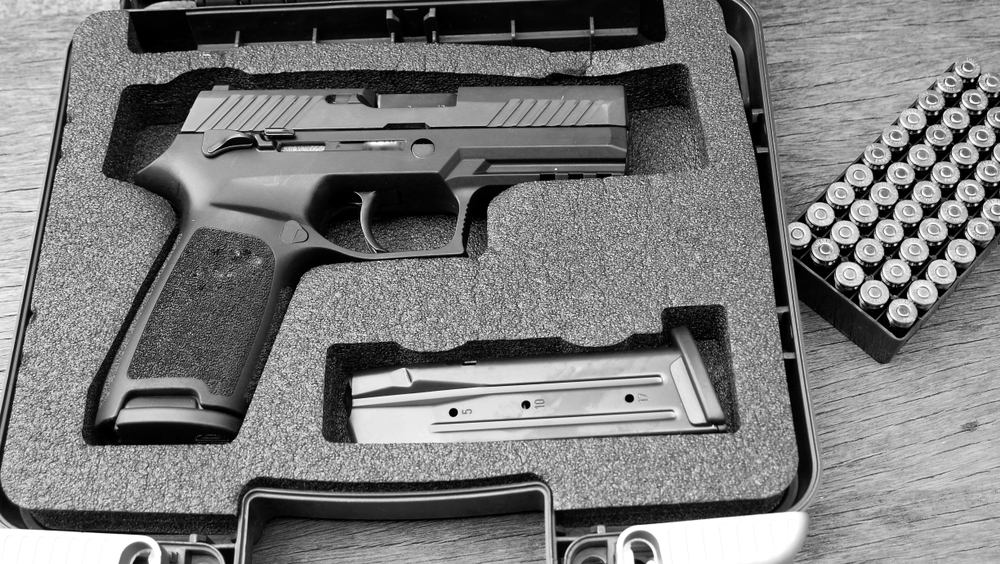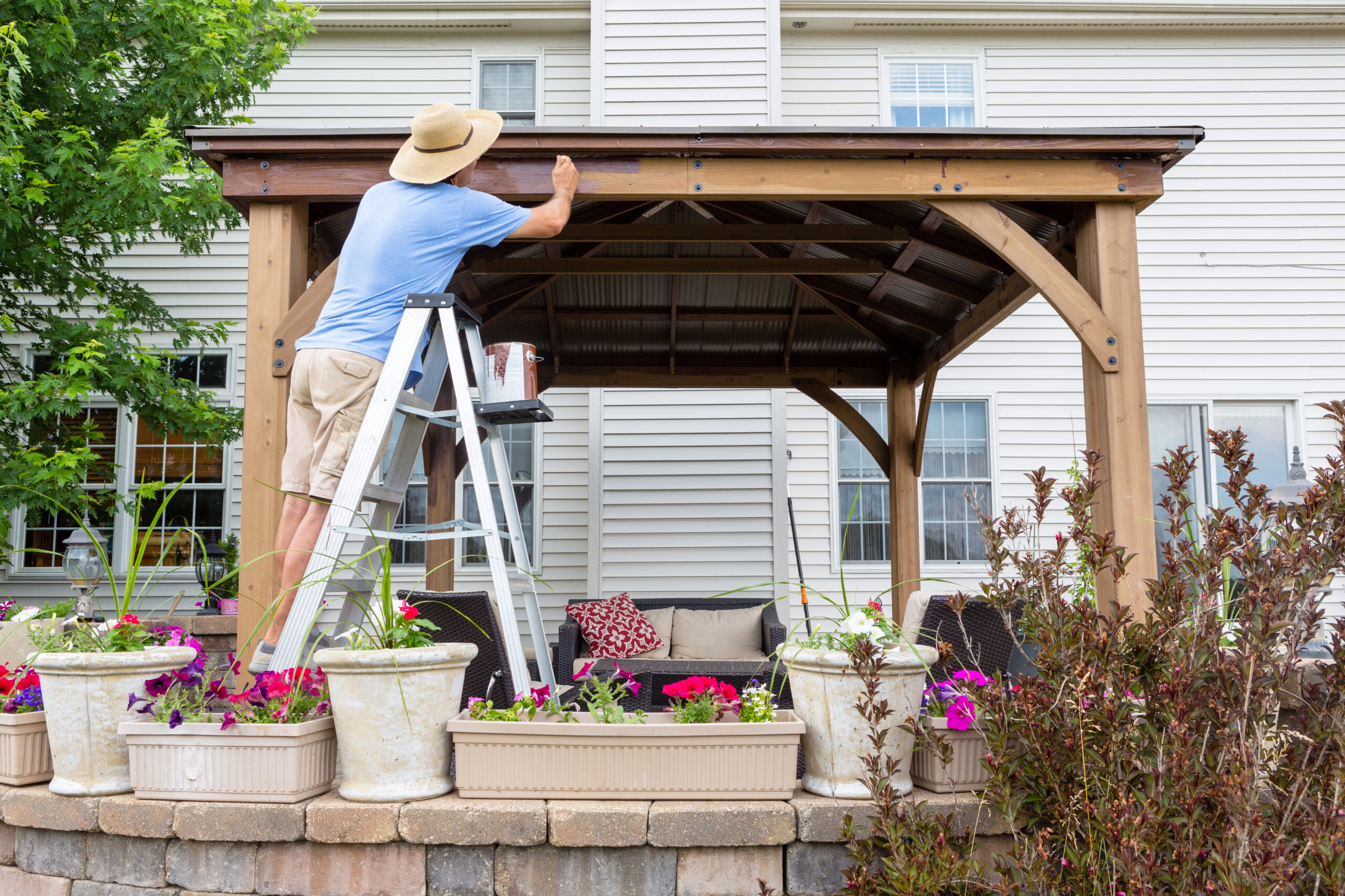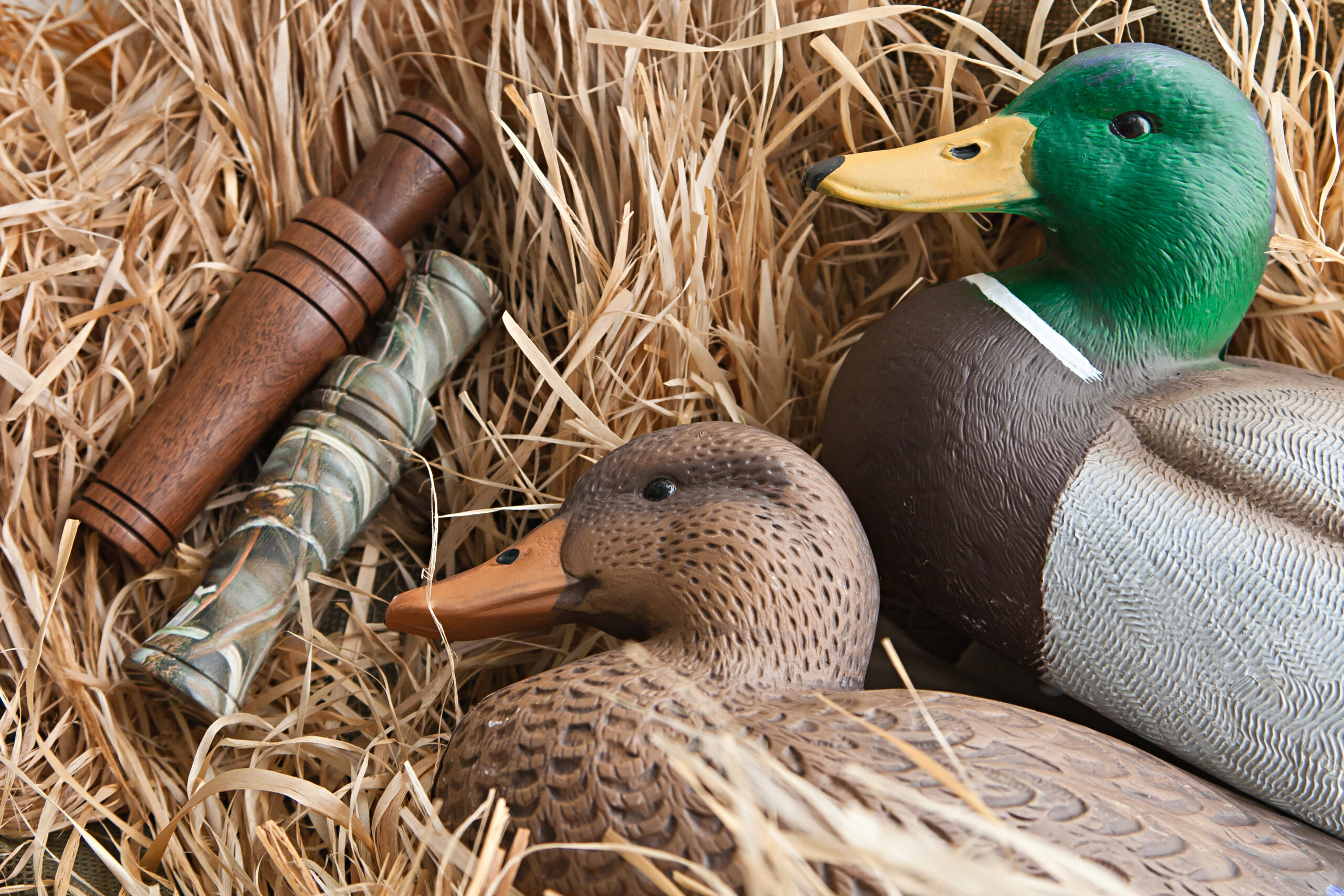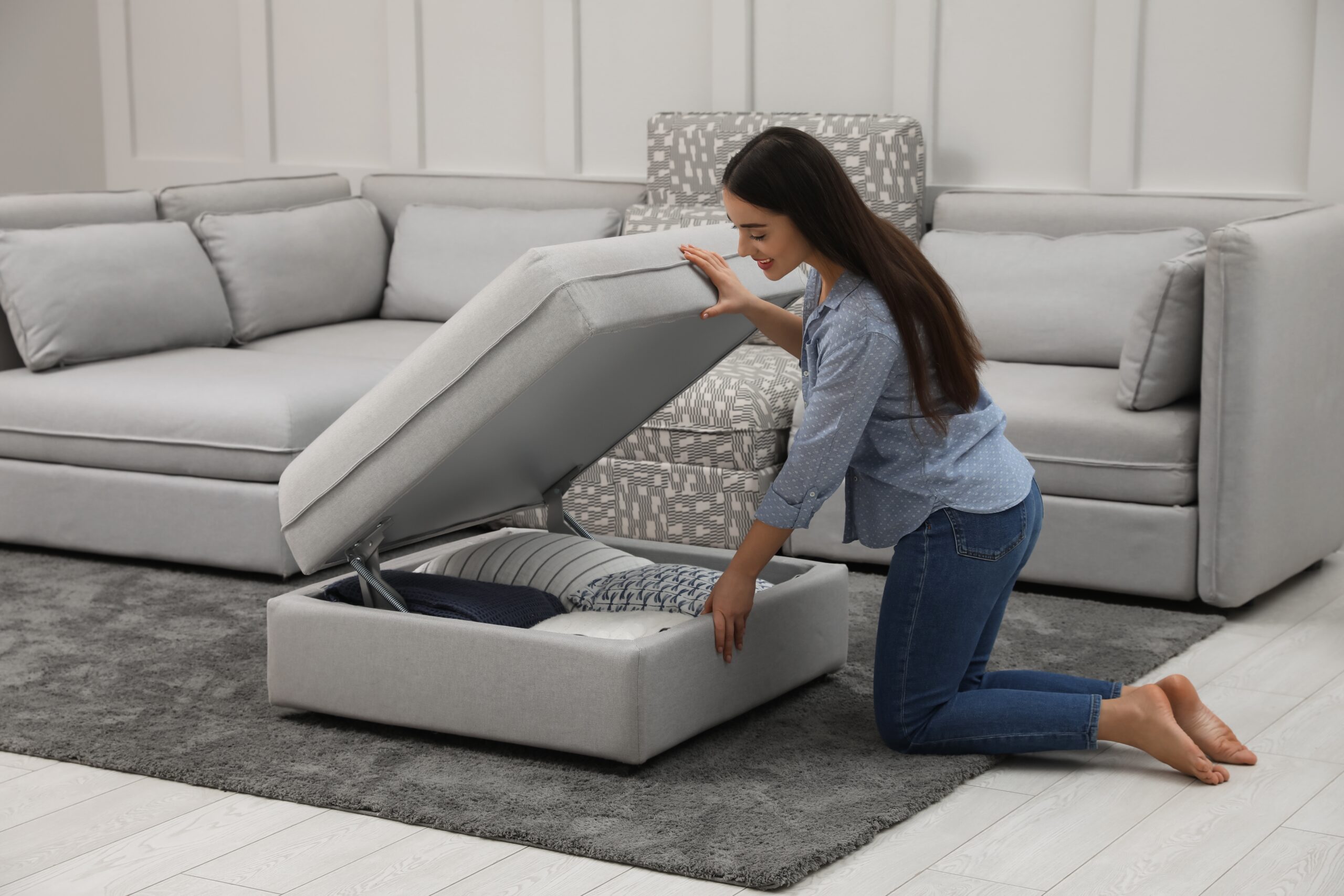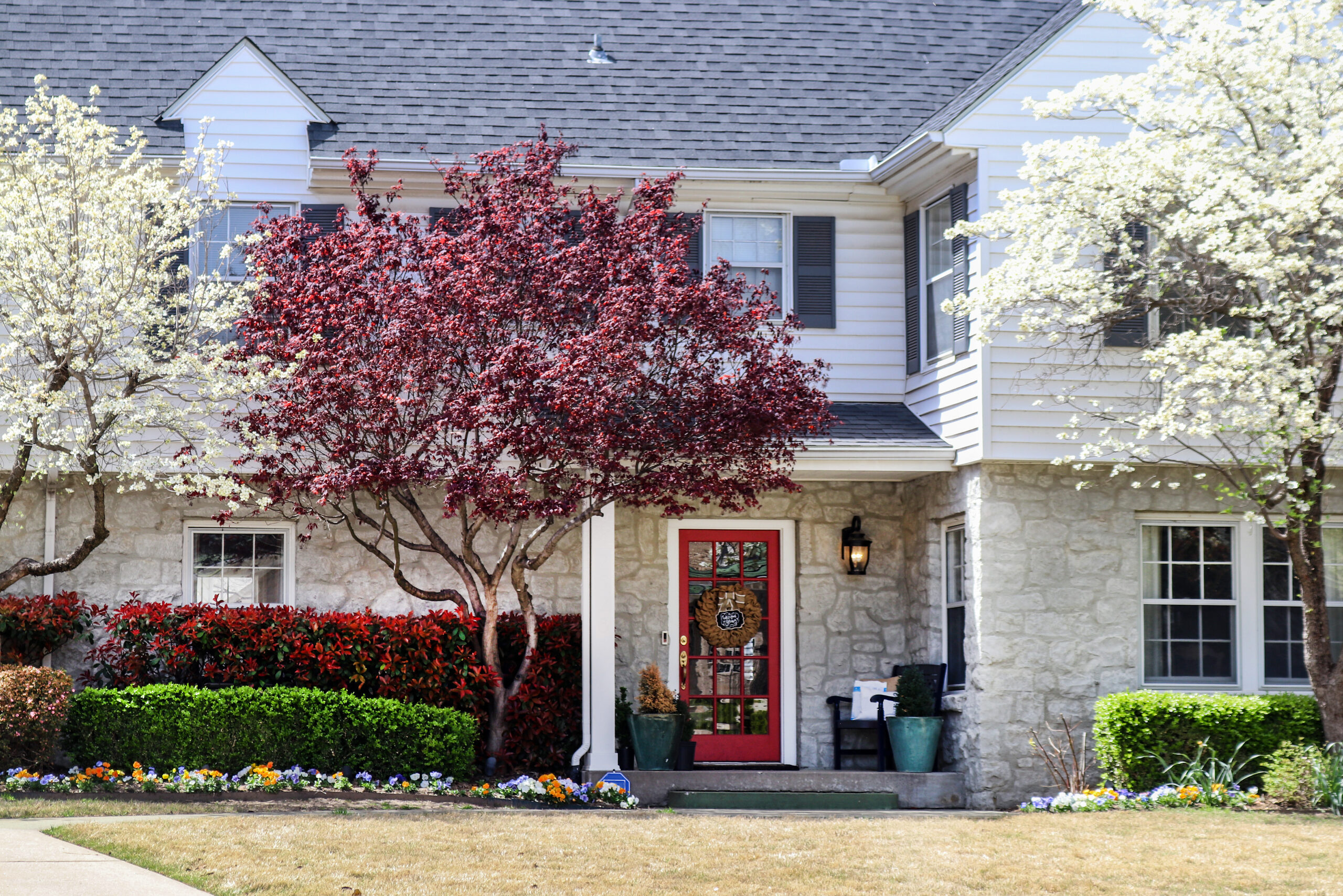There are many reasons you might own a gun–from personal protection or peace of mind to being a collector or enthusiast. No matter what the reason is, if you’re a gun owner, you should be aware of how dangerous they can be if not stored properly, especially in homes with children or teenagers.
In this article, we’ll go over a few important things to consider so your guns and ammunition are stored safely and securely to avoid accidents, damage, and theft, from choosing a secure location to regular maintenance and cleaning.
Choose a Secure Storage Location
The first consideration when properly storing guns and ammunition is selecting a secure place to keep them. Choose a location that can be locked and kept out of reach of children, such as a drawer, closet, or attic, but is easy for you and other authorized family members to access. As we’ll examine later, you can further secure your firearms by investing in a gun safe.
According to Project ChildSafe, a program developed by the National Shooting Sports Foundation, storing firearms securely significantly reduces the risk of accidents and unauthorized access, especially in the case of curious children who may not understand the potential dangers of firearms.
You should also consider visibility and environmental factors when deciding where to store your guns. Children will be less likely to find your firearms if they are kept out of their sight. In addition, a cool, dry place will best protect your guns from temperature and humidity damage–gun cases and safes can help ensure this isn’t an issue.
Note
While you may be tempted to seek out climate-controlled self-storage for your guns, most self storage facilities don’t allow guns to be stored in units. However, some facilities offer specialized gun storage units, so these may be worth researching.
Use a Gun Safe, Gun Case, or Gun Lock
A gun safe is one of the most secure methods to store a medium to large collection of firearms in your home. This container is built with the intent of storing guns and keeping them locked away and out of sight while protecting them from moisture and temperature changes. Gun safes come in many sizes and materials, so research which kind will work best for your collection.
If you can’t afford a gun safe or have a smaller collection that you may not need one for, you can still secure your firearms in gun cases. These are meant to store a single gun each, and you can often disassemble your gun before storing it, making accidents even less likely.
Whether or not you have a safe or a case, you should also consider investing in gun locks for each of your firearms that are stored while assembled–these locks keep guns from being able to fire. You can find locks of many kinds and purposes, including trigger locks, cable locks, and chamber locks–these all come with their own strengths and weaknesses, so be sure to pick the ones that best fit your needs.
Remember that gun locks are meant as an addition to secure storage, not a replacement for it. Always be sure to store your firearms in a secure location, even when they’re locked.
Store Ammunition Separately
Never store a gun while it’s still loaded, and always store your ammunition in a separate location from your firearms. According to Project ChildSafe, these precautions prevent unauthorized access to ammunition, which could lead to accidents or misuse of your firearms. Make sure this location is also easy for you to access in case you need to quickly load your weapon.
Educate Your Family Members or Roommates About Gun Safety
As a gun owner, you have a responsibility to teach anyone you live with about living safely with a firearm in your home. Family members and roommates alike should understand the basics of handling and storing guns to prevent accidents, injuries, and damage.
According to the National Shooting Sports Foundation (NSSF), educating anyone you live with about firearm safety is one of the simplest and most important ways to keep accidents from happening, especially if there are young children in your home. Make sure you maintain an open conversation with your family members or roommates so they understand how important safety is, and encourage them to ask questions for further understanding.
Check Your Firearms Regularly
Wherever you store your firearms, the Bureau of Alcohol, Tobacco, Firearms and Explosives (ATF) recommends cleaning and inspecting them regularly to maintain their safety and reliability–dirty and damaged guns can cause accidents even when being used as they’re meant to. Keeping your firearms clean, well-lubricated, and free of dust and dirt can prevent malfunctions and ensure that they operate as intended.
When you’re inspecting your guns, pay special attention to any moving parts or areas that are prone to wear and tear so you can properly catch any problems before they become more than just a nuisance. Replace any broken parts before they damage the rest of your firearm–this will save you money in the long run. Always check with your gun manufacturer about regular service as well.
Note: Use silica gel packets when storing firearms and ammunition to help absorb excess moisture. Be sure to replace them as needed.
Follow State and Local Laws
Different states have specific laws and regulations regarding the storage of firearms, such as requirements for gun safes or gun locks. For instance, in California, firearms must be stored in a locked container or equipped with a locking device when not in use.
Gun safe storage standards are also clearly outlined. Massachusetts requires that firearms be stored “in a locked container or equipped with a tamper-resistant mechanical lock or other safety device”.
Wherever you may live, be sure to research and get familiar with the local laws in your state so you don’t run into any legal consequences for storing your firearms incorrectly. These laws are also meant to act as guidelines for safe and secure storage, so following them will further protect you and your housemates. Consult your local law enforcement agency or refer to the ATF’s guide on state gun laws for more information about the regulations in your state–or in a new state if you happen to be moving and taking your guns with you.
In Conclusion
Guns are extremely dangerous in the wrong hands, but securely storing and protecting your firearms will keep any accidents from happening. Selecting a safe location or using a gun safe, storing your ammunition separately from your guns, and educating yourself and your family members and roommates on regulations and best safety practices will ensure you’ve taken every precaution.
If you’re thinking about putting your guns in self-storage for a long time, but you don’t know where to look, SelfStorage.com can help! Use our search tool to find specialized firearm storage facilities near you, or call (512) 705-6208 to speak to one of our experts.
